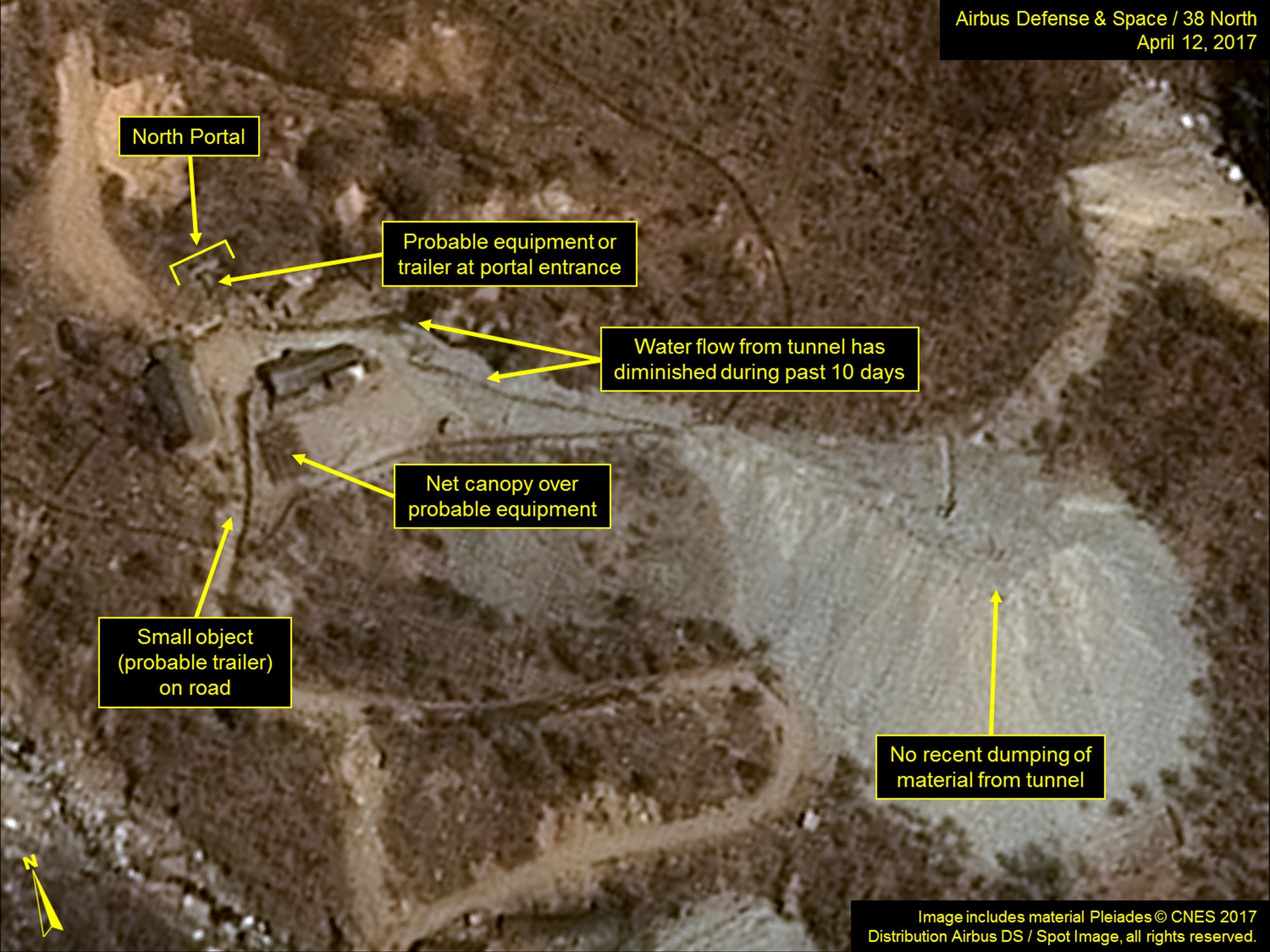North Korea's mountain nuclear test site at risk of imploding, warns Chinese scientist
Regime risks blowing top off mountain and spreading radiation across region, leading nuclear researcher says
Your support helps us to tell the story
From reproductive rights to climate change to Big Tech, The Independent is on the ground when the story is developing. Whether it's investigating the financials of Elon Musk's pro-Trump PAC or producing our latest documentary, 'The A Word', which shines a light on the American women fighting for reproductive rights, we know how important it is to parse out the facts from the messaging.
At such a critical moment in US history, we need reporters on the ground. Your donation allows us to keep sending journalists to speak to both sides of the story.
The Independent is trusted by Americans across the entire political spectrum. And unlike many other quality news outlets, we choose not to lock Americans out of our reporting and analysis with paywalls. We believe quality journalism should be available to everyone, paid for by those who can afford it.
Your support makes all the difference.North Korea's mountainous nuclear test site may be at risk of collapse due to repeated seismic shocks from the blasts, a Chinese scientist has claimed.
The Punggye-ri site is believed to be the location of all the regime's five most recent bomb tests and a researcher said any further detonations could cause the entire mountain to collapse.
It could cause radiation to leak out across the region, including into China, Wang Naiyan, of the China Nuclear Society, told the South China Morning Post. The increased size of the bombs made the risk of blowing the top off the mountain more likely, he added.
The paper said geophysicists at the University of Science and Technology of China in Anhui province had pinpointed all five blasts to the Punggye-ri area.
The US ambassador for the United Nations, Nikki Haley, said North Korea's leader Kim Jong-un was "begging for war" after the latest nuclear test on Sunday, the regime's biggest yet.

Pyongyang claimed to have detonated a thermonuclear warhead which could be fitted onto an intercontinental ballistic missile (ICMB). Then on Tuesday morning the North was reportedly seen moving a rocket resembling an ICBM towards its west coast.
The test resulted in South Korea boosting its own military capabilities. Washington and Seoul agreed to lift restrictions on South Korean missiles, according to the South Korean presidential office, allowing Seoul to improve its pre-emptive strike capabilities against the North.
Donald Trump has agreed with South Korea's leader, Moon Jae-in, to "maximise pressure" on Pyongyang.

Join our commenting forum
Join thought-provoking conversations, follow other Independent readers and see their replies
Comments